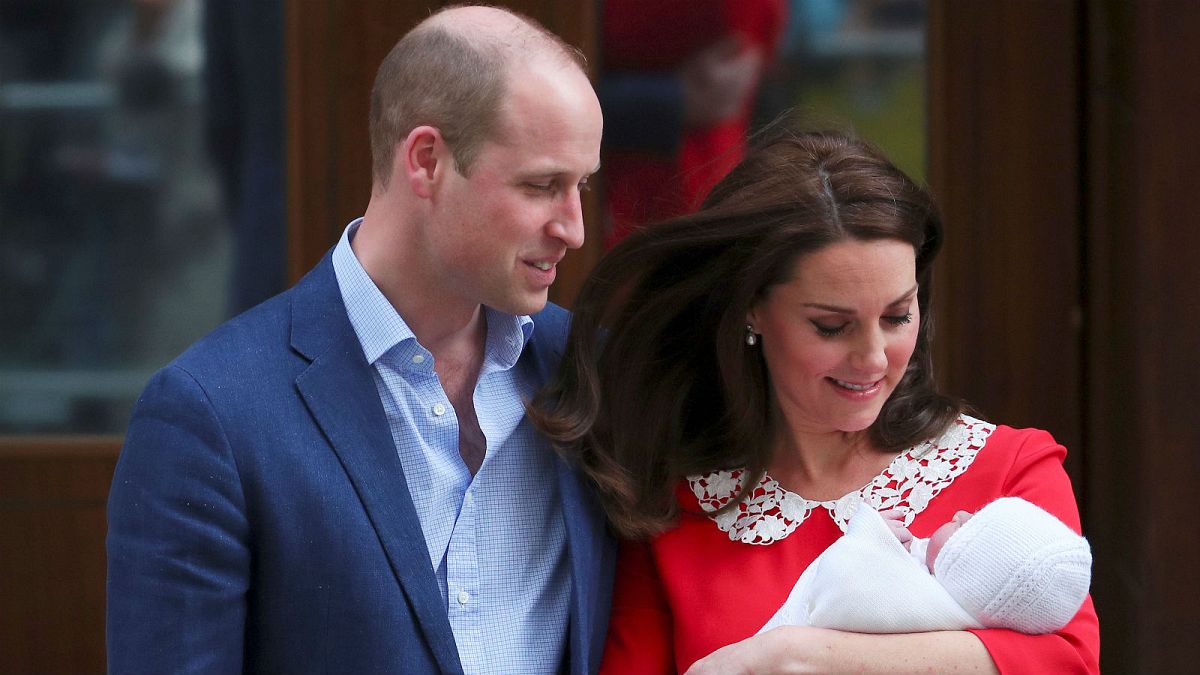The Duchess of Cambridge has just given birth to a son, her third child. The life of these Royal parents may be radically different from the lives of most European families, but what does parenthood look like for the rest of us? These six charts will tell you everything you need to know.
1. How many children are born per woman?
Source: Eurostat
Despite a slight fall in the birth rate, in 2016 France again topped the table for the average number of births per woman, at 1.92. This is no surprise for a country with a raft of pro-natalist policies, including tax breaks and cheaper rail travel for large families, and a well-respected subsidised childcare programme.
At 1.34 births per woman, fertility rates are joint-lowest in Italy and Spain, two of the countries hardest hit by the economic crisis. Greece, which was harder hit, has a birth rate of 1.38 per woman.
2. What is the average age of new mothers?
Source: Eurostat
In 2016, the mean age for new mothers was lowest in Bulgaria, at 26, closely followed by Romania, at 26.4 and Latvia, at 26.8. It was oldest in Italy, at 31.
3. What percentage of babies are born to unmarried parents?
Source: Eurostat
Over 50% of babies are born to unmarried parents in several countries. France tops the chart, at 59.7%. In Greece, the vast majority of parents are married: just 9.4% of babies are born out of wedlock.
In the past 30 years, this percentage has increased most drastically in traditionally Catholic countries, such as Italy, Spain and Ireland. This tallies with a significant decline in marriage rates across Europe. This decade, the rate was at its lowest in Italy since the First World War.
4. Percentage of first births to teenage mothers
Source: Eurostat
Romania has the highest rate of teenage births of first babies. 14.2% of its first babies are born to teenage mothers. The rate was lowest in Slovenia, at just 1.6%.
5. How much paid leave can new or expectant parents take off work?
Source: OECD
New Zealand's Prime Minister, Jacinda Ardern is unmarried, pregnant and going on maternity leave. She will be back at work within just a few weeks, however, and is relying on her partner, Clarke Gayford, to be a stay-at-home Dad. It seems like a modern division of labour, but could parents easily do it here in Europe?
Before you take one look at the chart and dash off to Bulgaria, however, you should note that these figures hide quite a complicated picture. In Greece, for example, there are big differences between the public and private sectors. Most women just receive the basic amount of 17 weeks' paid maternity leave, with an additional 26 weeks of "special maternity leave" for those insured with a particular insurer.
Although Sweden doesn't seem to seem to grant much maternity or paternity leave, its allowances are actually amongst the most generous in Europe. The country leads in the way in gender parity, allowing both parents to take a share in paid parental leave in addition to the gender-specific leave for mothers and fathers.
Bulgaria offers the most generous paid leave to new or expectant parents, with women entitled to 58.6 weeks, assuming that they have made 12 months of insurance contributions beforehand, and men to a comparatively trifling 2.1. New or expectant parents get least paid time off in Portugal, but they get longer if they split the leave.
6. Are new parents entitled to a bonus?
Source: OECD
New parents in Luxembourg receive a big payout. In Finland, resources are concentrated on essential items. Since 1938, all Finnish parents have received a cardboard box containing baby clothes and other basic equipment. At a push, the baby can sleep in the box itself...
